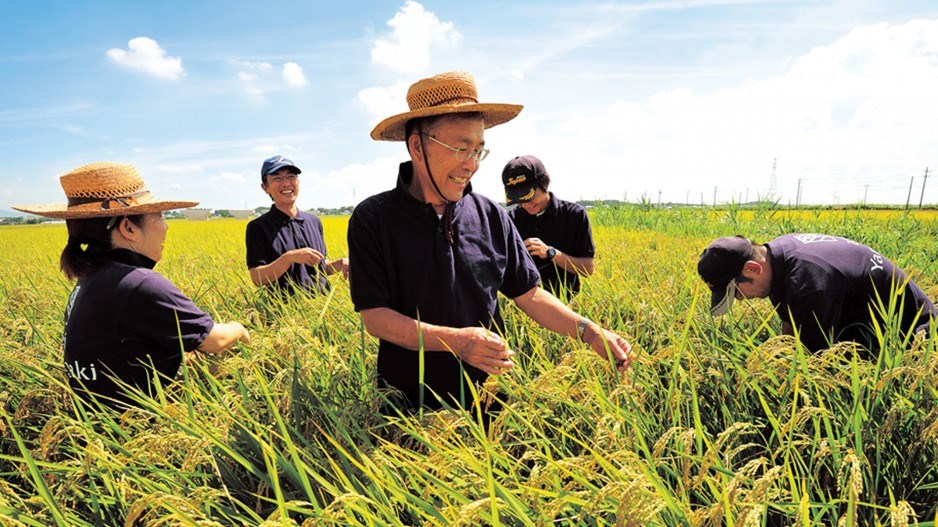IBARAKI, Japan – If Japanese agriculture has a future – and it remains a big “if” – the Yamazaki family farm business here, an hour by train and car outside Tokyo, is what it will look like.
Japanese agriculture has for years been on a destructive life-support system of subsidies and tariff protection. The sector has withered to the point where it employs only 1.6 million people full-time out of a working-age population of about 62 million, and well over half the country’s farmers are over 65 years old. Of those, most are more hobbyists than farmers and only work their land part-time. Very many don’t bother working their holdings at all, especially now that subsidy cuts have made it unprofitable.
The bottom line is that farm produce contributes only 1% to Japan’s gross domestic product and a scant 1.5% of export income. Successive governments have propped up agriculture, however, because, like in many other countries, rural constituencies have a lot fewer voters than their urban counterparts. Rural members of parliament have played a significant role in keeping Prime Minister Shinzo Abe’s Liberal Democratic Party in power for almost the entire period since the Second World War. Another element is the almost mystical role played by agriculture, especially rice production and the ideal of food self-sufficiency, in Japanese culture.
But Abe has decided the economic and political distortions of Japanese agriculture cannot continue. A key element of the economic reform program is to bring Japanese farming back from near-death and to make it into a viable growth industry.
If that is to be achieved, it is people like Seishi Yamazaki and his Agri Yamazaki Ltd. corporate farming operation that are showing the way.
Immediately, the most striking feature of the Yamazaki family operation is its sheer size. This farm is nearly 100 hectares, which may not sound like much when the average Canadian farm is almost 300 hectares but is astonishing when Japanese farms are only two hectares on average. In a recent interview in the bustling farm office, Yamazaki said the amalgamation of land into viable farm sizes is essential. Abe’s progressive removal of farm subsidies is helping to consolidate land holdings, but the continuing high value of land makes the investment prohibitive for would-be corporate farmers.
Yamazaki says his company owns only 10% of the land it farms. The rest is rented, but the land is not in one block. It is a patchwork of small fields, dotted around the district and thus time-consuming and expensive to cultivate. Acquiring sufficient land in one block is “an impossible dream at the moment,” Yamazaki said. But Yamazaki admits to being a dreamer, though there is a very practical commercial edge to many of his fantasies about the future of the farm.
One is already a reality, born out of a dream Yamazaki had in the 1980s of turning to organic farming. The Yamazaki farm has become known for the high quality of its organically produced rice, which sells for double the price of standard rice. The produce is known even here in Canada, where some Japanese chefs import the farm’s renowned short-grain sushi rice. Yamazaki farm rice is also used in the production of high-end brands of sake wine.
The regulations governing organic farming and produce are as tough in Japan as they are in the European Union. Thus Yamazaki sees opportunities for selling to China, where consumers have such little faith in the quality of local food – some of it actively poisonous from purposefully introduced or environmental toxins – they pay well over the odds for reliably pure foreign produce.
Agriculture will never play a major part in the country’s economy. But Yamazaki and others like him are showing that by consolidating land into large economic units, keeping down production costs and focusing on growing high-quality foods with international appeal, Japanese agriculture can survive and thrive.
Jonathan Manthorpe ([email protected]) has been an international affairs columnist for nearly 40 years.




